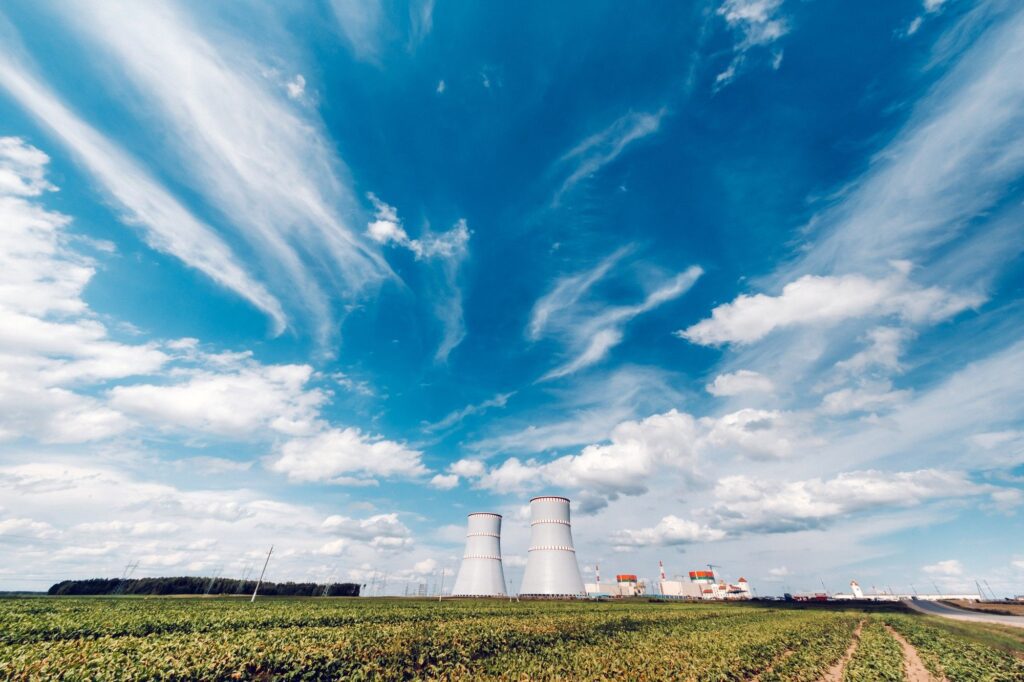Nuclear Power for the Future – Is it the Best Option
Are you tired of the same old arguments about renewable energy? Solar panels, wind turbines, blah, blah, blah. It’s time to shake things up and embrace the power source that truly deserves the spotlight: nuclear power. Yes, we know what you’re thinking. “Nuclear? Isn’t that dangerous?” But hear us out. When it comes to powering our future, nuclear energy has a lot more going for it than you might think. So sit back, grab some popcorn (that was definitely not popped with solar energy), and let us explain why Nuclear Power for the Future is where it’s at.

What is Nuclear Power?
Nuclear power is a source of energy that comes from splitting atoms. This process is known as nuclear fission, and it releases a significant amount of energy in the form of heat that can be used to generate electricity. The fuel used for this process is usually uranium. After the Uranium Production, it will then undergo fission when bombarded with neutrons. Nuclear reactors are designed to control this process and prevent any harmful radiation from being released into the environment.
Despite its many benefits, nuclear power also has some drawbacks that make it a controversial topic. One concern is the risk of accidents or meltdowns at nuclear facilities, which could lead to widespread harm to people and the environment. Another issue is the safe disposal of radioactive waste generated by nuclear reactors, as this material remains dangerous for thousands of years.
Overall, whether or not nuclear power is the best option for meeting our future energy needs depends on how we address these concerns and balance them against its potential benefits. Some argue that increasing reliance on renewable energy sources like wind and solar may ultimately prove more sustainable in the long run, while others believe that nuclear power remains an important part of our energy mix due to its reliability and low emissions compared to fossil fuels.
Pros: Reliability, Efficiency, Sustainable
One of the primary advantages of nuclear power is its reliability. Unlike other renewable energy sources such as wind and solar, nuclear power plants can operate at full capacity 24/7 without any interruption. This makes it an extremely valuable resource for countries looking to reduce their dependence on fossil fuels and ensure a stable energy supply. Additionally, nuclear reactors are designed to last for several decades with proper maintenance, making them a long-term solution for energy production.
Another key benefit of nuclear power is its efficiency. Nuclear reactors can generate large amounts of electricity from a relatively small amount of fuel, which makes them an excellent option for countries with limited resources or high electricity demand. Furthermore, the waste produced by nuclear plants is minimal compared to other forms of energy generation such as coal or gas-fired power plants.
Finally, nuclear power is also sustainable in the sense that it does not emit greenhouse gases like carbon dioxide and methane during operation. This means that using more nuclear power could help mitigate climate change while still meeting growing energy demand worldwide. Overall, its many advantages make it worth considering as a viable option for future energy generation needs.
Cons: Safety Concerns, Disposal of Radioactive Waste
Safety concerns have always been a significant issue when it comes to nuclear power plants. Although the industry has taken many steps to improve its safety measures, accidents still happen, and the consequences can be severe. The most infamous example of this is the Chernobyl disaster in 1986, which resulted in lasting environmental damage and loss of life. Another accident occurred in Fukushima, Japan, in 2011 due to an earthquake and tsunami that led to radioactive leaks. With such incidents still happening despite safety measures being put in place, it is clear that nuclear power poses inherent risks.
The disposal of radioactive waste is another significant concern associated with nuclear power. This waste remains radioactive for thousands of years, making its storage extremely challenging. Currently, there are no viable long-term solutions for disposing of this waste safely, leading to fears that it could contaminate groundwater or pose other threats to human health and the environment. Moreover, storing such massive amounts of dangerous material requires considerable resources and infrastructure investment.
While nuclear power offers several benefits like low carbon emissions and cost-effectiveness compared to fossil fuels; safety concerns and disposal of radioactive waste pose serious issues that cannot be ignored lightly when considering it as an option for future energy production.
The Future of Nuclear Power: Possible Innovations and Advancements
One of the potential innovations in nuclear power is small modular reactors (SMRs). SMRs are smaller and more flexible than traditional nuclear reactors, making them better suited for use in remote locations or as backup power sources. They also require less maintenance and can be constructed at a lower cost than their larger counterparts. Another possible innovation is advanced fuel designs that use materials such as thorium instead of uranium or plutonium. These fuels have a higher level of safety and produce less waste.
Advancements in reactor technology could also lead to increased safety measures, including improved systems for detecting and controlling nuclear accidents. For example, some researchers are exploring the use of artificial intelligence to predict potential problems in nuclear reactors before they occur. Additionally, advancements in robotics could make it easier to maintain and repair equipment within nuclear facilities without putting workers at risk.
Despite these potential innovations and advancements, there is still debate over whether or not nuclear power should play a significant role in our future energy mix. Some argue that renewable energy sources like wind and solar should be prioritized due to their lower environmental impact. Others point out that while renewables are important, they may not always provide enough consistent power to meet our needs, making nuclear power an important option for meeting base load electricity demands.
Final Thoughts
In conclusion, nuclear power is a viable option for the future, but it has its challenges. The industry needs to address concerns related to safety, waste management, and the potential for weapons proliferation. Additionally, there are high costs associated with building and maintaining nuclear reactors.
However, nuclear power provides significant benefits that cannot be ignored. It produces large amounts of energy without releasing greenhouse gases or other harmful pollutants into the environment. Nuclear reactors can also operate continuously for long periods of time without interruption, making them reliable sources of electricity.
Ultimately, whether or not we include nuclear power in our energy mix is a decision that requires careful consideration of both the risks and rewards. As technology continues to evolve and new innovations emerge, it is possible that some of these challenges will be overcome in the future.






